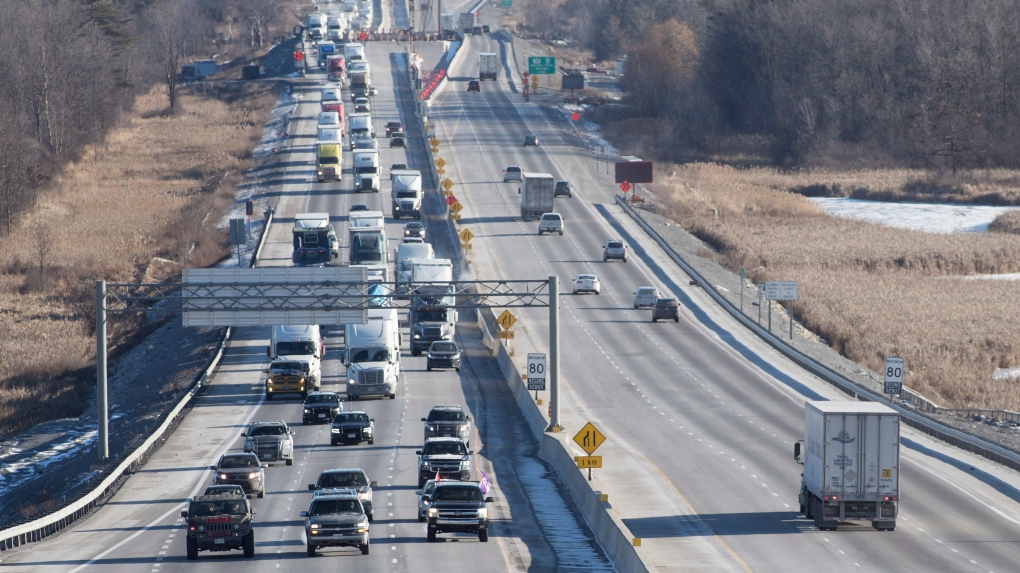Canada to announce all new cars must be zero emissions by 2035::Canada expects to announce this week that all new cars will have to be zero emissions by 2035, a senior government source said, as Ottawa is set to unveil new regulations in the latest example of countries around the world pushing for electrification.



Does break dust count as an emission?
*brake
And it should, it’s fairly toxic. Fortunately EV’s primarily and almost exclusively use regen.
Then there’s tire and road wear, which increase substantially with the heavier weight of EVs.
Not if we implement a weight tax on trucks and SUVs
I’ve commented on this before, though I couldn’t find it to plagiarise myself.
Ford puma ICE: 1280KG
Nissan leaf BEV: 1580KG
Ford F150: 2134 KG
Range Rover: 2513KG
Honestly, tax weight and emissions. Emissions tax the energy put in the vehicle, and charge extra for high emissions in dense areas.
I also advocate for smaller cars, but batteries are heavy as fuck. The same car just swapping the motor with a battery will be considerably heavier.
Battery technology is impoving everyday, newer cars could easily have smaller batteries
And they will. Why have a 600 mile battery? Your bladder won’t last that long on the highway. Have a 300-400 mile battery and cut the weight.
Non-sequiter.
The spelling is non-sequitur. And it’s not that, the idea is that vehicles are already much heavier than they should be by use. For example a Tesla Model 3 is much lighter than the two most popular car models being sold in Canada, despite being an EV.
By the way, the biggest contributors to road and tire wear are heavy freight trucks, so instead of jerking off about EVs vs non-EVs, maybe building a decent railway infrastructure would actually help on that front, while also removing some cars on long road trips from the roads.
It’s really not as much as people make it out to be. I read something estimating an equivalent EV should be 20% heavier at our current technology, although some vehicles are much less efficiently designed and you have the monstrosity that is the Hummer
My Tesla seems like it’s about that although there’s really no ICE vehicle to directly compare to. However the important thing is it weighs much less than the pickups and full sized SUVs that all too many people drive. Feel free to advocate for taxes or fees based on weight and I’ll agree, secure in knowing my EV is lighter than half the population’s ICE cars and that it’s fair. The tendency (at least in US) is more of a problem than the extra weight of an EV.
If we consider the specific problem of road wear, it’s also a much smaller to non-existent problem than people think. Yes, road wear is relative to weight but cars are on the flat part of the curve where a few hundred pounds makes no real difference compared to road wear dominated by big trucks
Tire and road wear are not “as bad as exhaust” like some people suggest, but weight significantly increases road wear per the Fourth Power Law. So even 20% more isn’t great.
And as pretty much everyone transitions to EVs, I expect the ratio of trucks in EVs to come up to the same as with ICEV. I know some people have come down to the decision “Do I buy an EV car or an ICEV truck?” but as more EV trucks come on the market, I expect the size of vehicles to continue to grow.
I’m just trying to point out that EVs aren’t purely good and we as a society should be reducing our car usage in general. If alternative transportation (walking, biking, public transport) is possible, we should be facilitating and encouraging it.
Living in a city with an effective transit system, such as Boston or NYC, gives so much freedom to go anywhere anytime that you just can’t do with cars. It’s definitely something we need to work toward, and imagine how much better a good transit system would be.
The same with intercity rail: it’s so much faster and easier traveling Boston —> NYC with Acela than by driving or flying, and there’s no reason we can’t have similar serving most of the population (not area, but population)! Or imagine leveling up to high speed rail!
But some locations and usages will always be best served by personal vehicles , and transit will take decades, even if our politicians start funding it adequately
Cars getting fatter has been an increasing issue for decades. Some of the people responsible for that are some of the same people now using tire and road wear as a talking point against EVs.
At least with EVs, there’s a path to getting it back down. The primary weight is the battery. Instead of having a 600 mile range EV (which is pointless), have a 300-400 mile range and cut the battery weight down accordingly.
What EV has a 600 mile range?
None, which is exactly the number it should stay at.
None, which is the number it should stay at.
Of the direct operational sources of pollution:
EVs may not be perfect but they’re a HUGE improvement.
In the new euro 7 emission standard it does
Don’t look at what powers the power plants. Just sit back and think you’re enjoying your zero emissions cars
Perfect is the enemy of good.
You mean the brakes that, if driven properly, are hardly ever used in an EV, and may last the life of the vehicle?